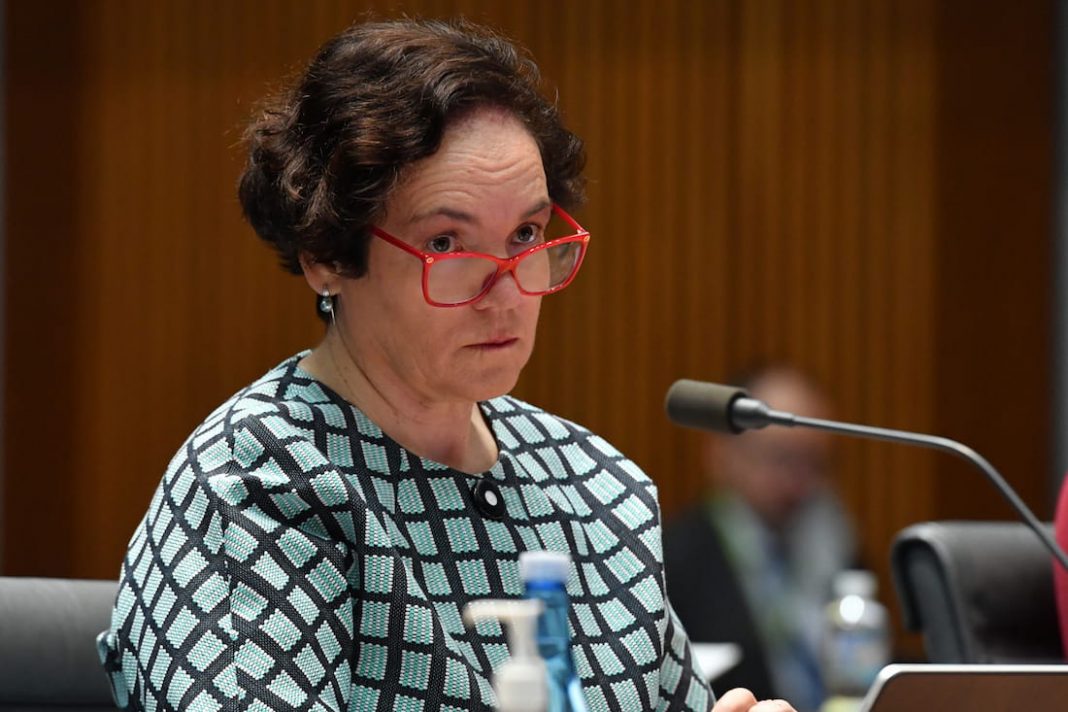Senior public servant Kathryn Campbell has quit her $900,000-a-year job in the defence department following damning revelations about her role in the illegal robodebt scheme.
The department confirmed on Monday it had accepted Ms Campbell’s resignation effective from July 21, a day after her suspension without pay was made public.
Ms Campbell became an adviser on the AUKUS security partnership in June 2022.
The senior bureaucrat was suspended from the role on July 10, three days after the release of findings by a royal commission into the robodebt scheme.
The commission singled her out for criticism in its report, finding she misled cabinet over the illegal welfare debt recovery scheme.
Its report found said she was involved in a policy proposal taken to cabinet that was “likely to mislead” as it did not reference the use of income averaging or need for legislative changes.
It found Ms Campbell pushed ahead with the scheme because then-minister Scott Morrison wanted it pursued and the government needed budget savings.
Ms Campbell said the exclusion of the information was an oversight, a claim the commission rejected, saying it would have been extraordinary for someone of her seniority and experience.
The commission’s report included a sealed section recommending criminal and civil prosecutions after lashing the “dishonesty and collusion” behind the program.
No names have been made public.
Assistant minister Tim Ayres said it was important government members did not undermine any potential prosecutions.
“It is important people in my position respect that process and don’t say anything that would undermine the process,” he told ABC TV.
Nationals deputy leader Perin Davey reiterated the calls for restraint, saying the coalition accepted robodebt was a “very unfortunate point in our history”.
“The sealed section is there to ensure the royal commission didn’t prejudice any future prosecutions or investigations that will take place,” she said.
“We all need to be very measured in how we respond and we need to make sure that we allow those processes to take place without prejudice, without pre-judgment and without some of the over-the-top commentary.”
By Dominic Giannini in Canberra



